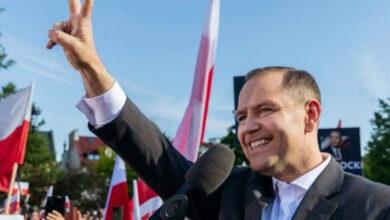Loss of schools and jobs: Pavlo Sushko, the Association of Cities and educators advocated the abolition of orders of the Ministry of Education and Science No. 1112 and No. 1276

During the war, Ukrainian education experienced not only adaptation to extreme conditions, but also a serious internal crisis caused not so much by military actions, but by regulatory decisions. This is primarily about the orders of the Ministry of Education and Science of Ukraine No. 1112 and No. 1276, which caused a wave of indignation among politicians, the pedagogical community, representatives of local self-government bodies and trade unions. In the public space, decisions of the Ministry of Education and Culture regarding legal, personnel and systemic threats that have acquired a national scale are actively discussed. In particular, public indignation was caused by the decisions of officials regarding the conditions of education of children from the temporarily occupied territories (TOT).
As emphasized People’s Deputy Pavlo Sushko, orders of the Ministry of Education and Culture No. 1112 and No. 1276 not only restrict the rights of students, but also violate the rights of teaching staff, creating precedents for violating labor legislation, demotivating educators, and destroying the infrastructure of distance learning.
According to Pavlo Sushka, due to the implementation of the specified normative acts, a number of risks arise, including the possible closing of schools, suspension of employment contracts, release of employees or their transfer to layoff. In some cases, people are enrolled in the personnel reserve, which, according to educators, does not have a mechanism for implementation in real conditions.
At the same time, in accordance with the current legislation, in particular, paragraph 30 of Article 26 of the Law of Ukraine “On Local Self-Government”, decisions on the reorganization or liquidation of educational institutions must be made exclusively by local councils. However, territorial communities, relying on the provisions of the Ministry of Education and Culture, often use the legally vague procedure of “suspension of activity”, which allows to stop the work of an educational institution without official liquidation or reorganization, which, in fact, leads to the same consequences, but deprives teachers of protection.
The People’s Deputy emphasizes that in modern conditions, when a large part of educators work remotely, their place of stay does not always correspond to the administrative location of the school. Many teachers continue the educational process, being in a different region where the institution is registered, as well as in the temporarily occupied territory or outside Ukraine. However, even in such conditions, employees perform their job duties and ensure the educational process. Attempts to terminate employment with them on the grounds that they cannot be physically present at school violate the fundamentals of labor law and become the subject of future lawsuits.
According to Pavlo Sushka, teachers who will be dismissed or dismissed will be forced to look for unqualified work, leave Ukraine or, being in the temporarily occupied territory, lose contact with Ukrainian education and potentially fall under the influence of the occupation administration. Such a situation threatens not only each individual employee, but also the entire educational environment, which loses personnel without the possibility of their rapid recovery.
On April 15, 2025, a meeting was held with the participation of representatives of the Association of Cities of Ukraine chaired by the Deputy Head of the Office of the President Iryna Vereshchuk. It was attended by the executive director of the Association of Cities of Ukraine Oleksandr Slobozhan, Mariupol Mayor Vadym Boychenko, Bilopol Mayor Yuriy Zarko and the Association’s education expert Mykhailo Gonchar. All participants agreed, that the order of the Ministry of Education and Culture No. 1112 must be canceled. Slobozhan emphasized the need to develop a new regulatory act that would take into account the realities of front-line and temporarily occupied communities and would not contradict the basic state documents. According to him, the current order creates risks not only for education workers, but also for the implementation of the instructions of the President of Ukraine to ensure quality and safe education.
Vadym Boychenko, for his part, emphasized that children who are abroad should not lose the right to receive secondary education in Ukraine. He emphasized that the state’s refusal to provide distance education for such children creates an additional threat of their eventual assimilation in other countries. The mayors emphasized that the proposed mechanisms of Order No. 1112 do not solve any of the existing problems, but only complicate the situation, creating administrative pressure on teachers and narrowing the rights of participants in the educational process.
As early as December 20, 2024, the Section of the Association of Ukrainian Cities for the Development of Deoccupied and Temporarily Occupied Communities appealed to the Prime Minister of Ukraine Denys Shmyhal, the Deputy Head of the Office of the President Iryna Vereshchuk, the Ombudsman of Ukraine Dmytro Lubinets, and the Education Ombudsman Nadia Leshchyk with proposals regarding the need to amend the orders of the Ministry of Education and Culture. In these appeals, it was emphasized the need to provide for the possibility of organizing the education of children who are abroad or at the TOT, in distance and individual forms. However, the Ministry of Education and Science of Ukraine did not consider these proposals.
The position of the educational community supported and the Trade Union of Education and Science Workers of Ukraine. According to the results of the meeting with the representatives of the trade union, a decision was made to join the demand to cancel the order of the Ministry of Education and Culture No. 1112. At the same time, Deputy Chairman of the Trade Union Serhiy Romanyuk stated that narrowing the rights and guarantees of participants in the educational process is unacceptable. He separately emphasized that the document violates the right of parents to choose an institution of general secondary education for their child. He also noted that the real consequence of the implementation of this order will be a significant reduction of teaching staff, especially in regions that have already experienced the burden due to population displacement.
In addition, during the meeting, educators drew attention to the provisions of Order No. 1276, which establishes the norm for the minimum number of distance learning classes — no less than 20 students. This provision directly contradicts the current legislation, according to which classes can be formed if there are at least 5 students. According to trade unions and educational experts, such a norm significantly narrows the child’s right to receive education in a distance form and creates the prerequisites for closing schools, reducing the educational load and mass reduction of teaching staff. This is especially dangerous in communities with low class sizes or in border areas where the number of students has decreased due to families moving abroad.
According to the results of the meeting, the Ministry of Education and Science of Ukraine was given a mandate: by April 30, 2025, to decide on the further fate of order No. 1112 — either to cancel it, or to revise it taking into account the proposals of territorial communities, the educational community, trade unions and human rights defenders. At the time of preparation of this material, a decision has not yet been made. However, all participants in the process unanimously emphasize that changes in the field of education, even in wartime, cannot be carried out by narrowing rights, restricting access to education and administrative pressure on teachers. Education should be accessible, and teachers’ labor rights should be protected. Everything else only exacerbates the internal crisis in the state, which is already functioning on the verge of resource depletion.





